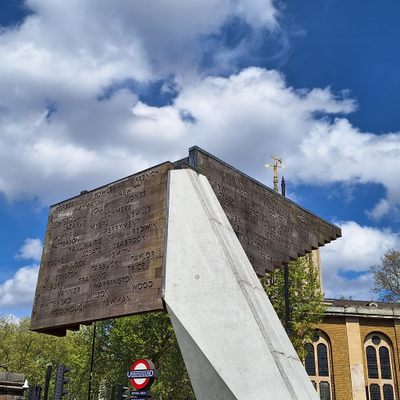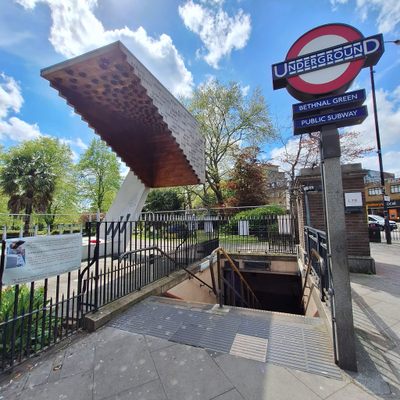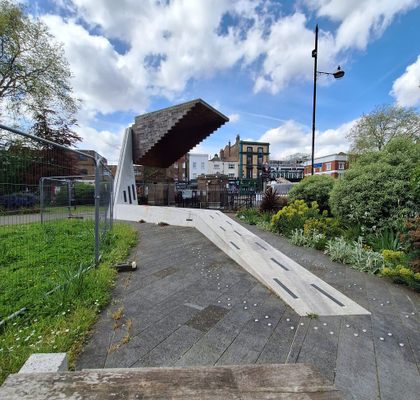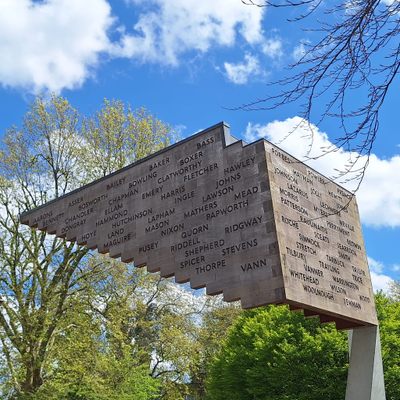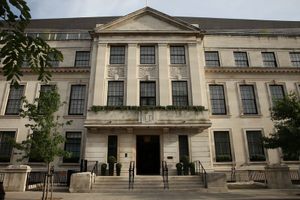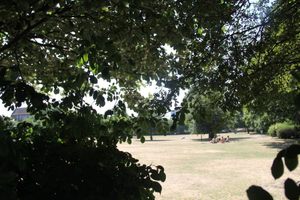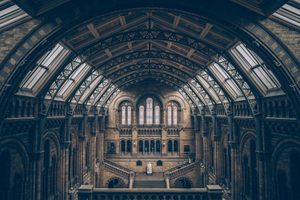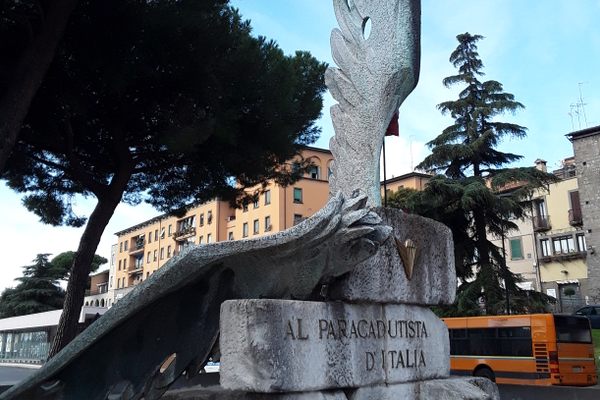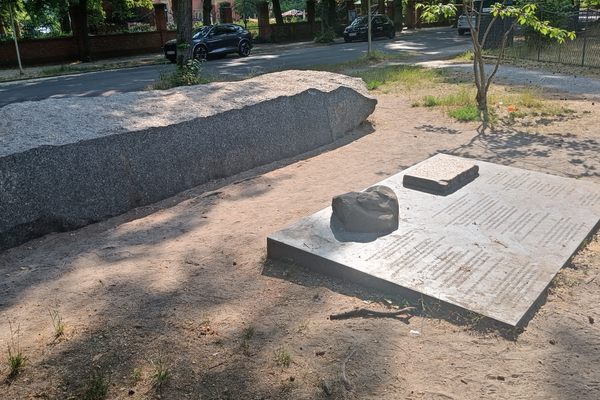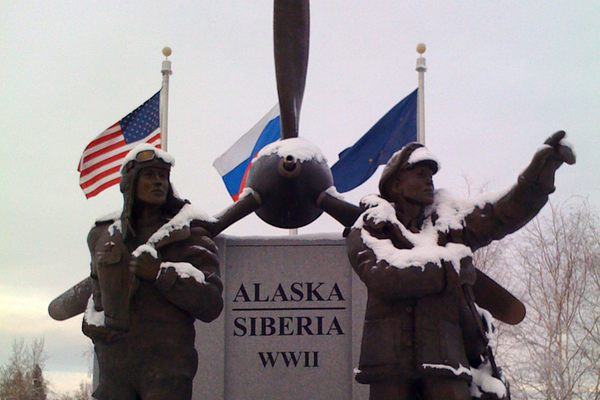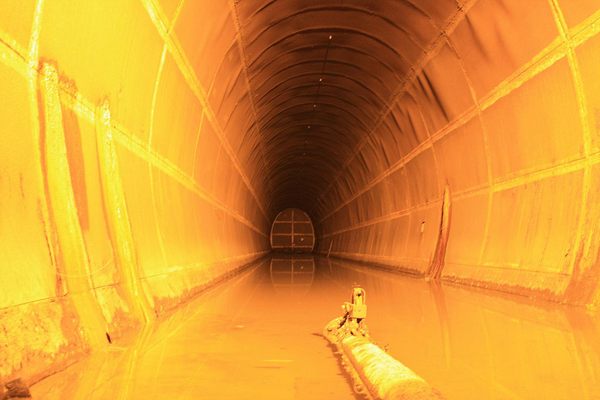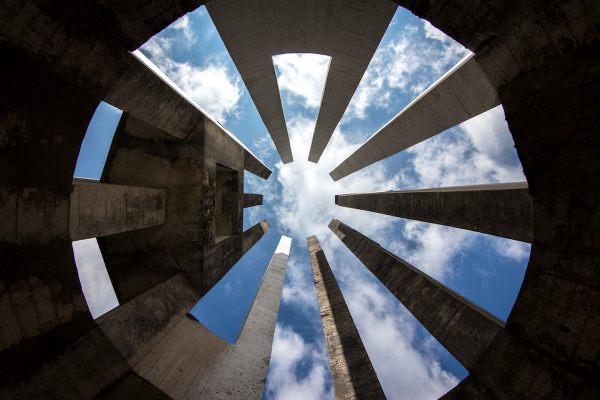About
While London was being bombed during World War II, the vast tunnel network of the London Underground functioned as a series of bomb shelters for the local populace. As the network had many deep-level tunnels that were accessible through many stations across the capital, they were used quite extensively. People would often spend entire nights within the tunnels, sleeping on the platforms, walkways, and even the tracks themselves. While these tunnels provided protection from German aerial bombardments, disasters could still occur within the tunnels if the crowds were not managed properly.
On the evening of March 3, 1943, are raid sirens had sounded across London, and people were proceeding to the Underground Stations for shelter, including the unfinished Bethnal Green Station in London’s East End. As people entered the single entrance of the unfinished station, the sound of new anti-aircraft rockets near the station caused a panic, as people mistook the rocket fire for bomb explosions, and they pressed down the stairs leading from the station entrance. A woman with a baby and an elderly man fell at the bottom of the stairs, and then other people fell on top of them, and then still more people were pushed into the pile, until the pile, containing about 300 people in total, reached the ceiling. It took over three hours to extract everyone from the narrow space. In the end, 173 people died, mainly from being crushed to death, 90 people were injured, and many others, including the rescuers, suffered severe psychological trauma.
It was the worst civilian disaster of World War II. Some additional safety features were implemented the day after the calamity, and investigations after the war, which lasted for years, found faults with multiple individuals and organizations. Decades after the event, however, the only indication at the station itself of the disaster was a small commemorative plaque above the entrance.
In 2006, architects Harry Paticas and Jens Borstlemann, who were commuting through this station, noticed the plaque and began researching the disaster, which at the time was much more poorly documented. They designed a more appropriate memorial for the station, and while it took a substantial amount of time and fundraising to get it constructed, it was finally unveiled in December 2017.
The memorial consists of an inverted hollow staircase mounted on an angular concrete support in a location adjacent to the entrance at which so many people died in 1943. The volume of the inverted staircase represents the space in which 300-400 people were crushed during the event, and 173 conicals in the ceiling of the staircase, which provide light on the sidewalk below, represent the 173 people who died during the disaster. The surnames of the victims are engraved across the sides of the staircase, and the individuals are also listed on plaques mounted on the plinth. A lengthy bench-like structure runs from the support for the inverted staircase along the sidewalk, and this bench structure has multiple plaque with quotes from relatives of people who died during the event.
The memorial is now a place where visitors to the area can learn about the tragedy that unfolded at the station in 1943 and reflect on that event. It is also a notable focal point for the local community to mourn the people who passed away during the calamity, with annual memorial services held at both the site itself and at the nearby St. John on Bethnal Green Church.
Related Tags
Know Before You Go
The Stairway to Heaven Memorial is located in the northwest corner of Bethnal Green Gardens adjacent to the entrance to the Bethnal Green Underground Station. The memorial and the park that lies within are publicly accessible at all times of day. The location can be reached via the Central Line on the London Underground, via the London Overground, and via multiple bus routes crossing through the area.
Street parking is available on the side streets in the area but may be limited.
Community Contributors
Added By
Published
September 27, 2024
Sources
- https://www.ltmuseum.co.uk/collections/stories/war/shelter-wartime
- https://www.youtube.com/watch?v=RNwFdhCaJZ4
- https://www.bbc.co.uk/news/uk-england-london-42384399
- https://www.iwm.org.uk/memorials/item/memorial/70373
- https://www.londonreconnections.com/2023/the-stairway-to-heaven-the-greatest-disaster-ever-on-londons-tubes/
- https://stairwaytoheavenmemorial.org/



